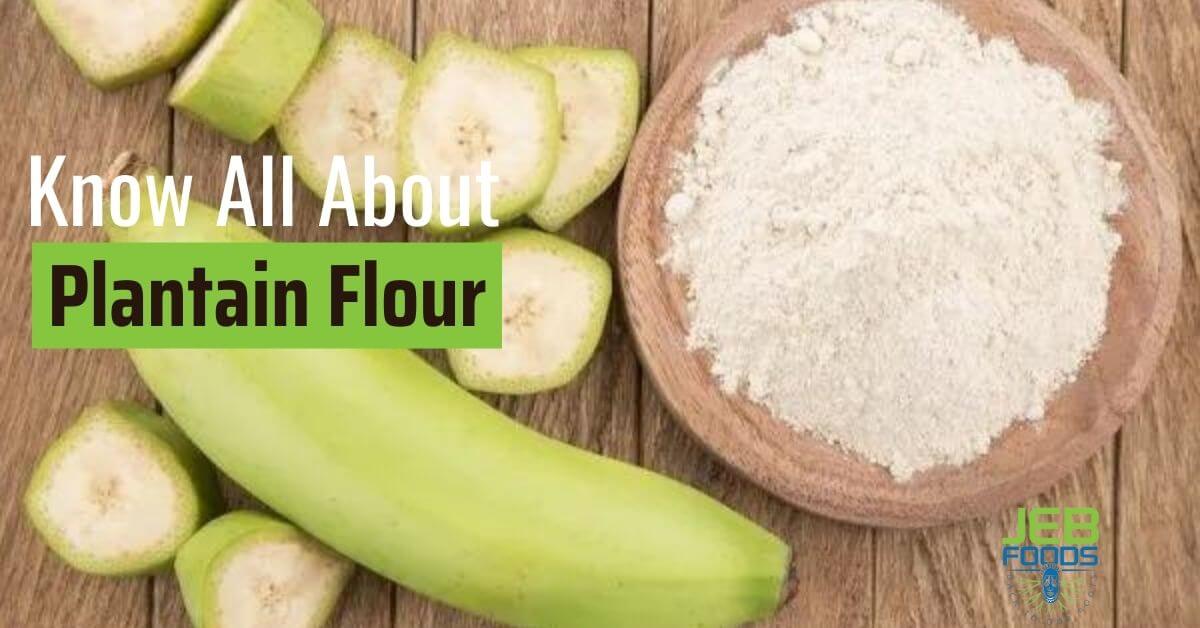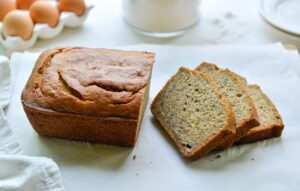Let me put cassava flour and white flour in a head-to-head comparison.
In recent times, baking and pastry enthusiasts have been very innovative in their fields of expertise. Many individuals have been seen on the Internet substituting cassava flour with white flour.
While both flours might seem similar, they are not the same; however, the mixtures still work out when cassava flour is used instead of white flour.
The use of cassava flour in place of white flour is usually done by people who wish to avoid gluten and followers of the paleo diet.
Although many individuals use cassava flour instead of white flour, which one would be healthier to use in a recipe and give the best quality?
Let’s see the properties of cassava flour versus white flour, the benefits of cassava flour versus white flour, and the downsides to cassava flour versus white flour.
Properties Of Cassava Flour Vs. White Flour.
Table of Contents
ToggleCassava flour is a good alternative to traditional white flour. It’s gluten-free and grain-free and yet can be used almost like white flour.
Cassava flour is hailed as the new star among alternative types of flour. It is a flour that is gluten-free, grain-free, and rich in fiber.
This flour is made from the starchy root tubers of cassava. It is a species of plant that belongs to the milkweed family.
Cassava flour originally comes from South America, and the indigenous people are said to have fed on the plant. There are now cassava growing areas in many tropical and subtropical areas around the world.
Even today, cassava is a staple food for millions of people in South America, Asia, and Africa.
The tubers of cassava are poisonous in their raw state because they contain hydrogen cyanide. However, they can be processed to boil the hydrogen cyanide, and the tubers are edible.
Because of this, cassava bulbs are often fermented, boiled, or ground into flour and washed out.
Tapioca is one of the many by-products of cassava flour. It is a pure starch powder.
Nutritional values of Cassava Flour
Cassava flour is an intriguing flour option for those who (must) follow a gluten-free or grain-free diet. It contains a lot of starch, has a moderate flavor, and has a fine texture.
As a result, cassava flour closely resembles the consistency and qualities of normal flour. Unlike other gluten-free flour substitutes (such as buckwheat or quinoa flour), Cassava flour may commonly replace gluten-containing flours like wheat flour.
Other gluten-free flours frequently need the inclusion of other ingredients to form a workable dough.
Every 100 grams of cassava flour has the following nutritional values:
- Energy: 371 kcal
- Carbohydrates: 88.6 g
- Protein: 0 g
- Fat: 0 g
- Calcium: 57 mg
- Potassium: 303 mg
What stands out in the nutritional values is the high proportion of carbohydrates. In comparison, white flour has around 70 grams of carbohydrates per 100 grams of flour.
Cassava flour is an excellent source of energy. However, it does not have protein and only a few essential amino acids. White flour has 11 grams of protein.
Cassava flour also lacks micronutrients such as vitamins. Wherever cassava is a staple food, nutritional deficiency symptoms can therefore occur.
That is why scientists have been trying to breed cassava varieties whose tubers contain more nutrients. On the positive side, there is a lot of calcium and potassium in cassava flour.
There’s nothing wrong with including cassava flour in a well-balanced diet now and again. Cassava flour gives you a lot of options, especially if you’re following a gluten-free diet.
Properties Of White Flour
White flour is bleached fine wheat flour that is free from bran and germ. The elements that are in the flour are the same that are present in the wheat grain.
Starch and proteins stand out from the rest for their quantity and their function.
Starch: This accounts for 80% of its weight of white flour. Its main component is glucose, and carbohydrate comprises three types of atoms: carbon, hydrogen, and oxygen.
Carbohydrates whose functional group (carbonyl) is formed with the first carbon atom are called “aldos.”
Depending on the functional group and the number of carbon atoms, glucose is an aldohexose: one aldehyde and six carbon atoms.
Although glucose cannot be broken down into a minor carbohydrate (hydrolyzed), it can be part of complex polysaccharides.

Components Of Flour
Glutenin and Gliadin: Some other important components of flour are glutenin and gliadin. They are proteins that act in a complementary and decisive way throughout the bread-making process.
Both starch and proteins remain inactive until the incorporation of water, when the dough-forming process begins.
Whole starch granules will only absorb water around them, while those broken during grinding will absorb their weight in water.
Proteins will absorb between 2 and 2.5 their weight in water.
Genetic variations in wheat determine the proportion of glutenin and gliadin and influence its behavior during the baking process;
This explains why different flours behave differently with the same proportions of water and other ingredients.
The so-called hydration rate expresses the absorption capacity of proteins: the higher the amount of protein, the greater the water absorption capacity
Benefits of Cassava Flour vs. White Flour
| Cassava flour | White flour |
| Reduces depression Have you ever heard of serotonin? Among other functions, this neurotransmitter improves mood, relieves stress, reduces the risk of depression, and even fights the craving for sweets. The major advantage of cassava flour is that it is a source of tryptophan and vitamin B6, two of the nutrients needed for the production of serotonin. | Relieves the symptoms of menopause White flour provides lignans to our body, reducing the flow of hormones, alleviating the symptoms of menopause, and reducing the risk of prostate, breast, or uterine cancer. |
| Aids Bowel Movement The fiber in cassava flour is excellent for keeping your bowels working well and keeping you full longer. This flour is another daily source to supply your body with nutritious fibers. | Good digestion Thanks to the fiber present in whole grains, whole wheat flour helps the intestine have a regular movement. But it also prevents the appearance of diseases such as inflammation, hemorrhoids, pain, and diarrhea, among others. Whole grains also contain lactic acid, which increases the reproduction of beneficial bacteria in the large intestine, which aid in digestion, promote the absorption of nutrients, and strengthen the immune system. |
| Gives Energy Are you discouraged and tired? Cassava flour is a quick source of energy! The father of the fastest man alive- Usain Bolt- was asked what the secret of his super-fast son was, he answered without thinking: the cassava. As it contains iron, carbohydrates, and B complex vitamins, cassava is an ideal energy source for those who practice physical activities and need a daily boost. | Does not give energy It has no fiber, clogs the system, inhibits digestion, results in a sluggish metabolism, and can cause weight gain, tension, headaches and migraines, as well as constipation. Those who are nutrient deficient: The inner germ layer and the outer bran are normally removed from white flour during refinement. |
| Improves brain function Another benefit of cassava flour is rich in manganese, a substance found in small amounts in other foods and improves mental functioning. | Does not improve brain function Bread and pasta that have been refined are among the worst foods for brain health. They’ve been depleted of minerals, and there’s no fiber to aid digestion. These refined carbs, on the other hand, hurry through your system, spiking your blood sugar. |
| Low cholesterol Rich in saponins, cassava flour helps manage cholesterol levels, reduces acidity in the body, and breaks down waste faster. | Reduce cholesterol Whole grains in whole wheat flour help prevent the absorption of bad cholesterol and lower triglyceride levels, which can otherwise lead to heart disease. The fiber present in whole wheat flour manages to trap and drag excess fat consumed by food, purifying the body of toxic substances. In turn, the antioxidants present in this flour limit the transport of cholesterol to the arterial walls and tissues. |
| Gluten-free Gluten, abundant in wheat flour, is high in gliadin, a poorly absorbed protein by our bodies and can induce intestinal inflammation. This illness can cause weight gain and potentially colon cancer, in addition to infections. One of the advantages of cassava flour is that it does not contain gliadin, making it suitable for celiacs and people allergic to wheat proteins. | Contains Gluten Most all-purpose flours available in the United States have 11 to 12 percent gluten, which is high enough to create decent bread but low enough to allow light-handed bakers to utilize it for cakes and pastries. Regional brands in the South and Pacific Northwest have 7.5 to 9.5 percent gluten, making them equivalent to pastry flour. |
| Lowers blood sugar There is evidence that yucca aids with blood sugar regulation. It also improves glucose and insulin metabolism and increases satiety by lowering blood sugar levels after meals. All of these things lead to greater metabolic health. | Maintains blood sugar levels Its high level of carbohydrates helps maintain blood sugar levels, reducing the risk of diseases such as diabetes. As there are no drastic increases in insulin in the blood, it is a product that is recommended for people with type II diabetes, obese people, and people with metabolic problems. |
| Fights against diseases The roots’ antioxidant qualities can aid in the treatment of flaccid stools. If you have diarrhea, boil the roots in water for an hour before eating them. This will aid in eliminating germs that cause stomach troubles and the reduction of diarrhea symptoms. | Prevents the appearance of degenerative diseases Free radicals destroy cells and can lead to degenerative illnesses, thus foods high in vitamins and minerals help protect the body from them. |
| Helps digestion Cassava flour is high in carbs, which are the body’s primary source of energy. Resistant starch is also found in cassava flour. Carbs that are not digested in the small intestine are known as nondigestible carbohydrates. | Reduce constipation Wheat is a great source of protein and fiber and causes a decrease in constipation problems, and reduces the risk of diseases such as colon cancer. In addition, a diet rich in fiber reduces blood cholesterol levels and can help prevent obesity. |
| Helps purify the body Resistant starches can be found in cassava flour. Eating resistant starches may provide several health benefits. Enhanced digestive and colon health and improved insulin sensitivity are among the possible health advantages. Cassava flour’s resistant starch may also aid weight reduction attempts. | Purify the body White flour helps purify the body very effectively, from the liver to the digestive system, helping lose weight and stay healthy. In turn, it provides long-lasting energy for training or demanding physical activities, as it provides slow-release energy. |
Also, I compared cassava flour vs Hazelnut flour here. Check it out to see the best option for baking
The Downsides of Cassava Flour and White Flour Usage
Due to its high glycemic index, cassava flour and its derivatives are not recommended for people with diabetes or on any high-calorie diet, as its excessive consumption can be harmful in these cases.
Cassava flour is only bad if consumed in excess. So, if you consume a little bit now and then, it won’t do so much harm to anyone’s health!
On the other hand, white flour has been known to cause the following:
1. Obesity
White flour provides a feeling of satiety very shortly after ingesting which causes your sugar levels to skyrocket and then plummet again, causing you to eat more than normal.
Eating flour can trigger a process known as glycation, in which fluctuations in blood sugar levels make it difficult to convert protein into energy. This favors inflammatory processes related to cardiovascular disease and problems such as arthritis.
3. Acid-base imbalance
The recurrent consumption of white flour causes an imbalance in the acidity of the human body, which must remain slightly alkaline. Aside from lowering the immune system, this lowers calcium levels in bones and favors conditions such as rheumatism, migraines, and osteoporosis.
4. Digestive problems
When refining the flour, more than 80% of its forage is eliminated. It is precisely these fibers that are necessary for good digestion, which is why the consumption of white flour can lead to nausea, flatulence, and diarrhea.
Those who suffer from constipation problems should especially avoid this type of food.
Final Thought
Cassava flour is by a mile more beneficial than white flour, based on the benefits and downsides, I will recommend switching to cassava flour if you are not using it yet.
Get your well-processed cassava flour here
Gluten-free diets are becoming increasingly popular in recent years.
Are you perhaps considering whether or not to consume gluten-free foods? Then you may choose to go for cassava flours.
However, cassava flour can only replace about 20% to 30% of the white flour used to make baked foods like bread.
Above that percentage would ultimately affect your finished product. Hence, if you are looking for gluten-free meals, stay away from white flour.
See why you should be baking with a gluten free flour
However, if you don’t mind having gluten in your meals and want something to aid digestion and reduce cholesterol, you may use white flour for your baking needs.
Also, if you want a good baking experience with grain-free flour, gluten-free flour, aids bowel movement, and gives an added burst of energy, then Jeb foods cassava flour is perfect for you.
However, if you would like to use cassava flour instead of white flour in a recipe with white flour as a major ingredient, you may have to mix a bit of white flour with your cassava flour for perfect results.
Here are the perfect gluten-free mix you can try today.




